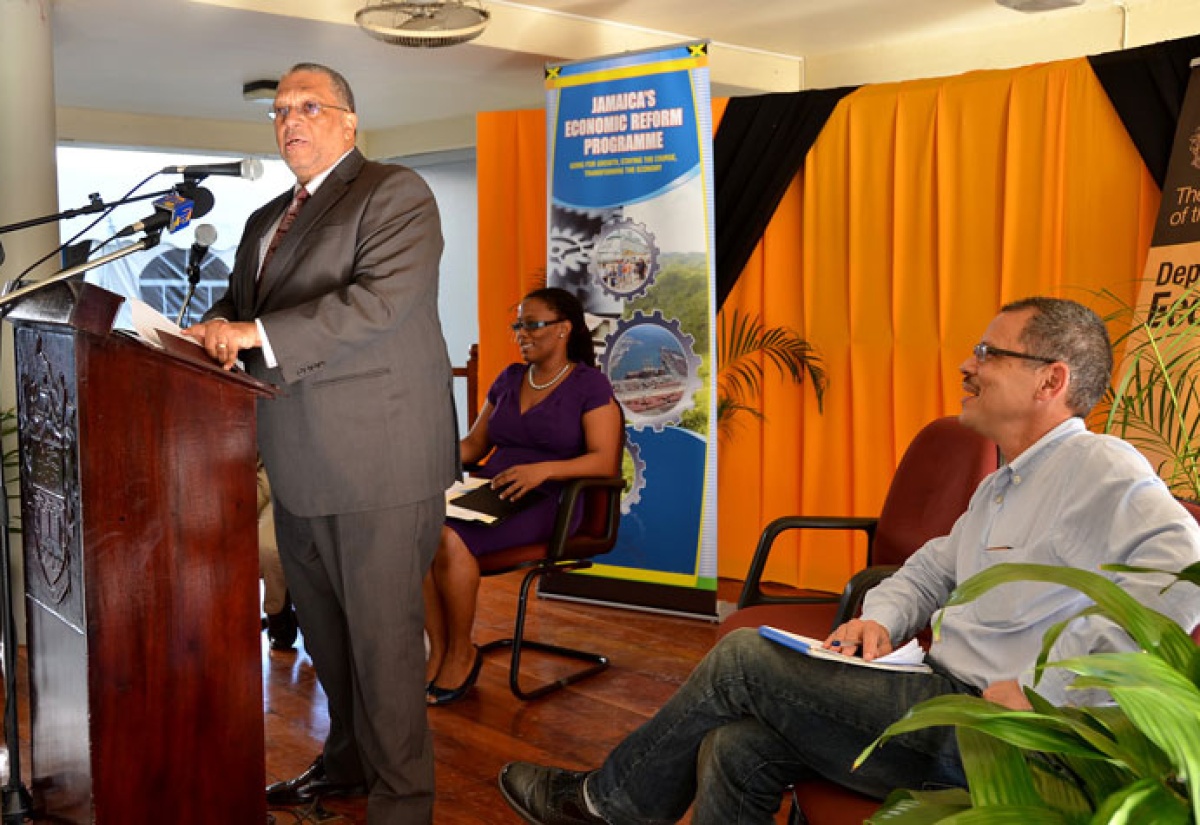Successful Implementation of ERP a Must – Finance Minister
By: , February 13, 2014The Key Point:
The Facts
- Dr. Phillips said development of the ERP would not have been possible without the “extensive” sacrifice of key stakeholders.
- Evolving from this, the Minister said, was the establishment of the Economic Programme Oversight Committee (EPOC).
The Full Story
Finance and Planning Minister, Dr. the Hon. Peter Phillips, says the government is compelled to ensure the successful implementation of the current economic reform programme (ERP), based on the sacrifices and commitments made by stakeholders to facilitate this.
Speaking at a public forum, jointly hosted by the Ministry and University of the West Indies (UWI), at Mona on February 12, Dr. Phillips said development of the ERP, approved by the International Monetary Fund (IMF) under a four-year Extended Fund Facility (EFF), would not have been possible without the “extensive” sacrifice of key stakeholders, such as the public sector, and bond holders, inclusive of pensioners.
“Public sector workers, through their trade unions, agreed to a programme of wage restraint which, proportionately, exceeds the sacrifice made by any other group; and national bond holders, including the pensioners, participated in the National Debt Exchange (NDX) at great sacrifice to their earning potential,” the Minister said.
“We also had to do some significant revenue raising measures in March of last year, amounting to approximately 2.5 per cent of gross domestic product (GDP), which was traumatic for the entire country,” he added.
Against this background, Dr. Phillips said there has been stakeholder insistence on the government, that the current measures being embarked on and the accompanying sacrifices, are the last such for Jamaica.
“They needed assurances in exchange for (those) sacrifices…we were prepared, as an administration, to do what was necessary (to ensure this) and that we should clothe this commitment with some kind of institutional solidity,” he indicated.
Evolving from this, the Minister said, was the establishment of the Economic Programme Oversight Committee (EPOC), which “has functioned well”.
“We (government) agreed to share all data, all the information about programme performance, with the representatives in the EPOC. We agreed further that we would have no objection to the non-governmental representatives issuing regular reports, uncensored by us, about the state of performance under the programme,” he noted.
“Not only would that build confidence (in the economy), but I think it provides a focus for the engagement of the wider community in the programme,” the Minister added.
Dr. Phillips said the government also established an Implementation Unit in the Finance Ministry, “charged with ensuring that all the programme requirements were followed and met, well before the (quarterly performance) reviews were due. And it has functioned well.”
The forum also featured presentations from Director of the UWI’s Sir Arthur Lewis Institute of Social and Economic Studies (SALISES), Professor Brian Meeks; and Head of the institution’s Department of Economics, Dr. Damien King.
It was held under the theme: ‘Jamaica and the IMF – Is this Time Different?’


